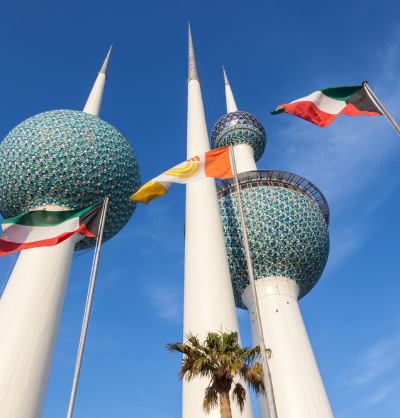Since the November 2022 election win by Benjamin Netanyahu, his governing coalition has been characterised by many international media outlets as the ‘most right-wing’ government in the history of Israel. Far-right politician Itamar Ben-Gvir, designated as Israel’s National Security Minister, was previously convicted of anti-Arab racism and branded as an ‘extremist’ by the Israeli media after wielding a gun during clashes with Palestinians in the neighbourhood of Sheikh Jarrah. The region held its collective breath wondering what happens next with a government that ignites such anxiety across the Arab world? When Itamar Ben-Gvir strode across the courtyards of the Al-Aqsa Mosque during the first week of the new administration on 03 January 2023, the worst fears were confirmed.
Understandably this new government has generated a great deal of concern for the success of the Abraham Accords and other peace agreements as well as any future agreements, such as a hoped-for rapprochement with Saudi Arabia. From this standpoint, we have to ask how will Netanyahu balance the interests of his coalition with fruitful diplomatic relations with the Arab world, especially with those countries that signed the peace treaties.
Tensions further escalated since Israeli forces killed at least 35 Palestinians on 26 January in the West Bank city of Jenin. Most of the casualties occurred during Israeli military raids, which Israel says aimed to detain Palestinian militants. In retaliation, an attack was launched, on 27 January, by a Palestinian gunman outside a synagogue in an Israeli settlement in East Jerusalem, claiming the lives of seven people on a Friday night. On 28 January, a 13-year-old Palestinian injured two Israelis just outside of the Old City and then on 29 January, the guards of one of the settlements killed a Palestinian youth who was said to be carrying a gun. This has made January of 2023 one of the bloodiest months on record, and all of this took place in the immediate run up to US Secretary of State, Antony Blinken’s, visit.
Blinken’s Visit to Jerusalem and the West Bank
On 30 January, Blinken held talks with Benjamin Netanyahu and other senior officials in Jerusalem and then went to the West Bank city of Ramallah to meet Palestinian President, Mahmoud Abbas. In both places, Blinken urged a deescalation of tensions and issued a renewed call for a two-state solution to the conflict. He also emphasised to reporters that ‘All sides must take steps to prevent further escalation of violence.’
Most analysts, from both Israel and Palestine, agree that Blinken’s visit made little progress towards de-escalating increasing Israeli-Palestinian tensions because it failed to propose any new initiatives or solutions to solve the Israeli-Palestinian conflict. Michael Milshtein, an expert from the Moshe Dayan Center for Middle Eastern and African Studies at Tel Aviv University, said the Israeli government was hopeful that Blinken would exert pressure on Abbas to renew the coordination of security efforts between the Palestinian Authority (PA) and Israel. But, after Blinken’s visit to the West Bank, Abbas made no indication he would do so. Instead, he accused Israel of violating Palestinians’ rights, promoting the annexation of the West Bank, and demolishing Palestinian homes. Furthermore, some ministers, who occupy important security positions in Netanyahu’s government, claimed that they plan to change the status quo of the holy sites.
It seems that the Israeli-Palestinian conflict is no longer a priority for the US because it is busy with other challenges such as the war in Ukraine. Professor Assaf Meydani noted that ‘negotiations between Israel and the Palestinian Authority in the current situation — with this new hawkish government — are impossible, and even the United States knows it.’ This sentiment was further developed by Ziyad Abu Ziyad (former Palestinian Minister) who remarked that the ‘US is not interested in ending the Israeli occupation or the conflicts in the region despite its talk of a two-state solution and positive steps towards solving the Palestinian issue. It’s time for anyone who bets on a US solution to the Palestinian issue to realise that this was nothing but a mirage.’
The Importance of Diplomacy with Abraham Accords Countries
Such a complex situation has redoubled the spotlight on the importance of diplomacy. Here is where the Abraham Accords countries come in. Some condemned the visit while others engaged in diplomatic talks. For example, the United Arab Emirates (UAE), which established full diplomatic ties with Israel in 2020, ‘strongly condemned the storming of Al-Aqsa Mosque courtyard by an Israeli minister under the protection of Israeli forces.’ It called on Israel to ‘halt serious and provocative violations taking place there.’ Similarly, Jordan, Saudi Arabia, Turkey, Morocco and Bahrain, as well as many other countries, strongly condemned Ben-Gvir’s visit. The Abraham Accords countries and some other Arab countries also condemned both the Israeli forces’ incursion into the Jenin camp in the occupied West Bank and the terrorist attack near the Jerusalem synagogue, both of which resulted in numerous deaths and multiple casualties.
While there was condemnation, there were also diplomatic talks to end the ongoing disputes in the Palestinian territories. Israel’s Ambassador to the UAE, Amir Hayek, held a telephone call with the UAE’s Minister of State for International Cooperation, Reem Al Hashimy, and clarified that Ben-Gvir’s visit to the holy site did not present a change in the status quo and that the incoming government had no intention of enacting any such changes. In fact, the gains made by the Abraham Accords, in economic, technical, security, educational terms, have been so successful that no-one wants to diminish all these positive gains due to a lack of diplomacy.
But the Netanyahu government must remember that the Abraham Accords require a stable environment in order to thrive, it cannot pursue a path of annexation or act recklessly in the West Bank and expect to invest in diplomatic relations. The main purpose of the Abraham Accords agreements is to collaborate during times of turbulence, not only during periods of stability. The Abraham Accords countries have majorly shifted from their traditional policies of strategically cold-shouldering Israel in the absence of a solution for the Palestinians, to accepting that the normalisation of diplomatic relations is a prerequisite for peace and conflict resolution.
The Abraham Accords countries have taken these agreements to a whole new level by making them go beyond formal, cold peace arrangements between governments, to a warm peace that includes people-to-people engagement. But if these countries discover that they are dealing with an irresponsible partner that does not respect their new, more bold, diplomacy, this closeness will diminish over time. Even if tensions can be worked through or negotiated around by the governments, it is difficult to convince wider publics that the Abraham Accords have benefited the region when the killing continues, especially since it is early days and many are still opposed to, and sceptical of the Abraham Accords.
The Role of the US, Europe and Arab Signatories to Peace Treaties with Israel
The Palestinian-Israeli conflict is not a priority for the US because it is preoccupied with the Ukrainian crisis. This explains why Blinken began his trip in Cairo, before coming to Israel and the West Bank, to highlight the central role envisaged for Egypt in this conflict, and to work with Hamas and the PA together to calm tensions. This is as well as fortifying the Egyptian Foreign Ministry’s communication with its Israeli counterpart to foster diplomatic action through Netanyahu’s visit to Jordan, Egypt, the UAE and then to the rest of the Gulf.
Even in Europe, because of the Ukrainian war, the conflict has slipped down the priority list because it has been overwhelmed by the knock-on economic, energy and food crises affecting the region. However, despite such stressful economic circumstances, the European Union (EU) announced on 02 February 2023 a financial assistance package totalling €296 million for the Palestinians at a signing ceremony held in Ramallah in the presence of President Mahmoud Abbas. Even though this budget might be helpful to the PA and the Palestinian people especially in health, education and infrastructure, as the Diplomatic Service of the EU mentioned before, the most pressing objective is to end the conflict. This will be achieved not only by sound crisis management to minimise the violence and the offer of financial support, but also by addressing the underlying causes of the conflict. This can only be achieved with a negotiated solution between the Israelis and the Palestinians. The facilitators in these negotiations could be the Europeans, but it is more significant to involve the Arab signatories to peace treaties with Israel.
***
No one is more committed to resolving the conflict than the countries of the region given that their security is the most threatened by it. The conflict can only be resolved by diplomatic means and by strengthening the power of public diplomacy, especially low-level meetings, and by activating diplomatic media or a media alliance among Arab signatories to peace treaties to reduce unrest. This is what we hope will be discussed at the Negev 2 Summit meeting, which Morocco will host in March.
Netanyahu’s government should be respected because it was democratically elected. However, it needs to operate more empathetically and better deploy the tools of diplomacy. The role of public diplomacy is significant here, especially when it comes to sensitive matters that might be detrimental to the peace treaties. Accordingly, coordinating with the diplomatic channels mainly through Arab countries that signed peace treaties and communicating through an impartial media is crucial, but to be able to do that more bipartisan coordination and agreements are needed among political parties within Israel otherwise the carousel of conflict will keep on turning indefinitely.
*Dr. Najat Al-Saied is adjunct professor at the American University in the Emirates, specializing in political media and communication. Her book: “Twitter Diplomacy: Media Polarization Before and After the Abraham Accords” has been classified as a best seller in the US. She can be reached at [email protected].








